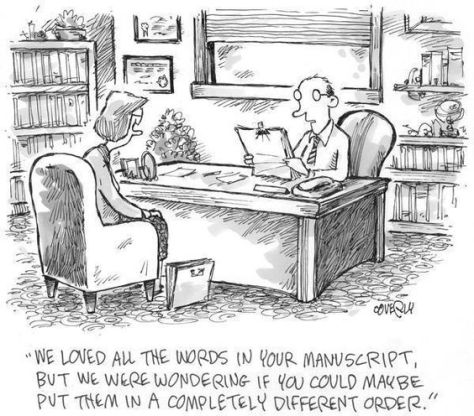“I enjoy self-publishing & sending publishers rejection letters. They’re like, ‘Who is this guy?’ And I’m like, ‘the end of your industry.'”
Ryan Lilly: Write Like No One Is Reading

Self-publishing is evergreen. Your book can always be in print via POD or available as an eBook. You can edit it, alter the cover or reissue it under a pen name.
The goal of many authors, to be accepted by a literary agent who touts your book around publishers has drawbacks you may not have thought of. A publisher can change your characters’ names, alter the plot and saddle it with a book cover design that’s ugly and irrelevant. Your newly published book has a shelf life of six weeks in a bookshop. If it doesn’t sell, it’s in the cut-price bin or remaindered, meaning it’s sent back to the publisher to be pulped.
https://www.theguardian.com/books/2002/mar/19/fiction.stephenmoss

If you self-publish, your earnings are higher than for comparable sales from a traditional publishing contract. I’m about to sign up to Amazon’s KDP Select programme, which offers 70% royalties + whatever I make from page reads as part of their Unlimited option. Even with their ordinary KDP authors are paid 35% of retail. Select means giving Amazon exclusivity for 90 days, meaning I can’t sell my books directly from my website, but I’m free to take a break from Select once the three-month period is over to go fully Indie—meaning I’d earn 100% of whatever sales I make.
Compare that to traditional publishing, which might pay an author $1-$2 for each book sold, those payments coming twice a year in arrears:
https://medium.com/@stevenspatz4/six-myths-and-one-fact-about-traditional-publishing-b3309f70fcb8
It’s odd how we admire musicians who release their records on their own labels, and we praise Indie filmmakers who get interesting projects financed and made, yet many people still look down their noses at writers who self-publish. It’s damned hard work to get everything together in a way that looks professional, as I can attest.
These days, it’s not the case that your publisher will do the bulk of the work in promoting their author clients—you’ll be expected to do all the things a self-publishing author does—establishing an online author platform, including blogging, running a website with a newsletter and posting on social media.
You don’t have a job for life with a book company. If your books don’t sell, you’ll be dropped. It’s better to be an unpublished writer, who might be the next big thing than to be shuffled aside as a failed author with a poor track record. Self-publishing is an attractive alternative. You can do so swiftly, not waiting up to two years before your book appears on a shelf. Most of the earnings are yours, not your publishers. If one book doesn’t sell well, there’s no stigma attached to you. Publish another one! You rule.
There have been some spectacular success stories for authors who started off self-publishing, such as Andy Weir, E.L. James, Adam Croft and James Oswald.

There are drawbacks. It’s difficult to get physical copies of your masterpiece into bookshops, though the way that independent stores are reinventing themselves, including focusing on local writers, that situation is changing. Bear in mind, though, that should you manage to distribute your titles, it will be on a sales or return basis, with you paying shipping expenses. Another potential expense is paying for your book to be displayed prominently with the store. Few readers realise that the reason James Patterson novels are all over the shop, including at the till, is that his publisher has bought those spaces.
Your local library system will stock digital and POD versions of your work—a great way of getting your name known.
I’m not expecting miracles from self-publishing my Cornish Detective series with Amazon. I have six years of experience publishing on Smashwords and Draft2Digital, so I know how many authors are doing the same thing as me. Amazon does more to promote sales, but it’s still a steep learning curve.
What do you think of self-publishing?
Do you buy eBooks to read?
With your own books, is it traditional publishing only or the bottom drawer forever?















